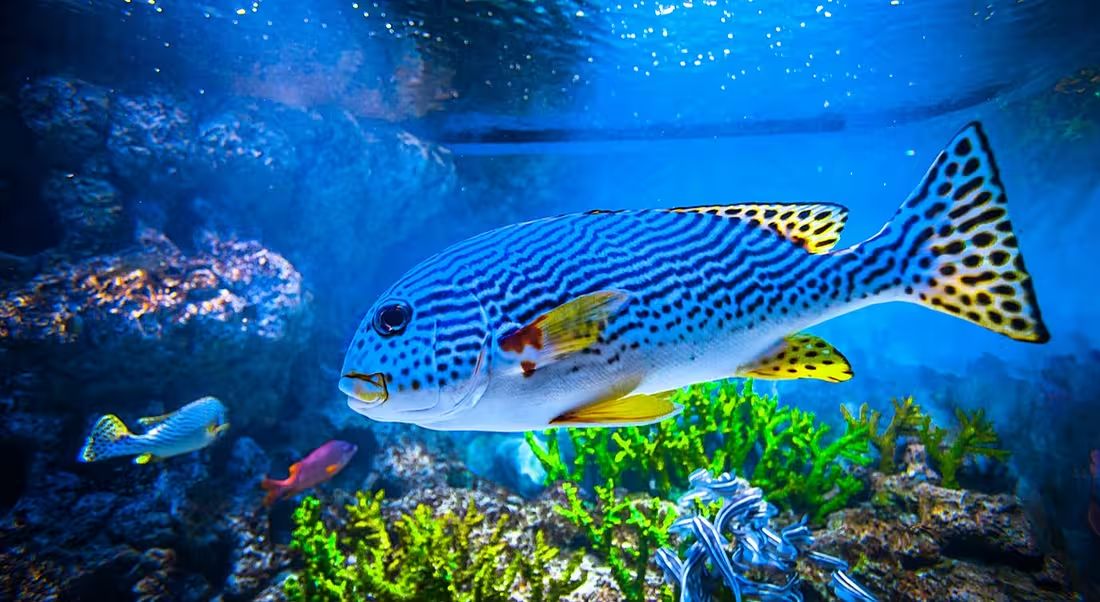Do you dream of exploring the ocean and all the wonders it holds?
For those who are obsessed with the ocean and the wildlife that lives beneath the surface, marine biology probably seems like an obvious career choice.
However, what many don’t know is that deciding on a career as a marine biologist is about as specific as deciding on a career as a scientist.
“There are so many different jobs in marine biology,” said Dr Louise Allcock, marine biology lecturer at NUI Galway. “I think a wide range of people could find a niche.”
Love the sea
Allcock said that while an interest in all things oceanic would be important for a marine biologist, there are very few other set traits.
“What people might think, which I don’t necessarily agree with, is that you need to be outdoorsy,” she said. “I think there’s such a broad spectrum of jobs that a particular type doesn’t matter.”
She said being fascinated by everything about the sea is the absolute most important trait that a future marine biologist can have. “I’m a big believer in all young people sort of following the thing they love,” she said. “If you’re fascinated by something, it will draw you in.”
Research the strands
One of the most common misconceptions about marine biology is that it is one job. In fact, it is a wide sector with a large number of strands that differ massively when it comes to your day-to-day job.
Knowing what and where the jobs are is key. Not only will it give you a broader knowledge of what career you can have, it might gear you towards specific skills and education.
Allcock said she doesn’t believe people, particularly students thinking about their careers, know about the full range of jobs within the marine biology sector.
To name but a few, Allcock listed fisheries, the Marine Institute, National Parks and Wildlife Service, and Bord Iascaigh Mhara as potential places to work.
Within these places, marine biologist jobs include environmental health monitoring, conservation and fish farming. There is also seaweed farming, education and research. “A lot of students would use their degree to go and travel,” said Allcock.
For those who have a passion for the sea but prefer to work indoors, she suggested molecular work, which involves extracting and analysing DNA.
You might also like to delve into microplastics work. “This area is just exploding at the moment,” she said. “There’s really clever lab stuff you can do with the equipment that detects the type of plastic that’s in the marine environment.”
Get educated
Once you’ve decided that you want to be a marine biologist and you have the right traits and idea of where you want to go, you’ll need to get the right education.
Again, Allcock said the broad nature of marine biology can give those coming from a general scientific background a chance to upskill in the right areas. “You can come in with other backgrounds but you’ve got to have relevant backgrounds,” she said.
“You’ve got to have some zoology, and you’re going to need some knowledge of oceanography.” When it comes to these specifics, Allcock said you wouldn’t necessarily get much oceanography with a general science degree, so that is something to think about if you want to be a marine biologist.
However, while a lot of students can get hooked on research, it’s not a requirement. “A lot of them would go on and do a PhD but that’s their choice, that’s not a necessity to then work in industry – a degree is absolutely sufficient.”
For a degree that is specifically engineered for marine biology or marine science, NUI Galway, University College Cork or Galway-Mayo Institute of Technology would be your first port of call.
Know your strengths
To be a marine biologist, you will need certain skills, just as accountants need to be good at maths and developers need have strong coding skills.
However, with so many jobs on offer, Allcock maintains that there are a broad range of skills and you don’t need all of them.
“For some parts of marine biology, a very practical aspect would be very helpful,” she said. “But, on the other hand, for a lot of the analytics we do in my lab, being better at maths is a much better skill.”
Allcock advises budding marine biologists to look at the jobs that are in the industry, find the ones that match your skills and work from there. “I think there’s a niche for everyone,” she said.
Gain experience
Once you have your education, it’s time to get out into the world, or into the lab.
For those who want to go straight into the industry, there are jobs, internships and even volunteer opportunities available. Marine Dimensions offers full-time internships and part-time volunteer placements.
Government bodies such as Bord Iascaigh Mhara also have graduate placements from time to time, and third-level education institutions have opportunities for graduates and researchers.




